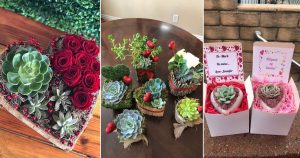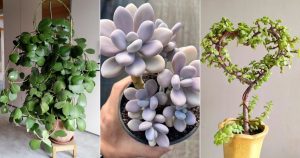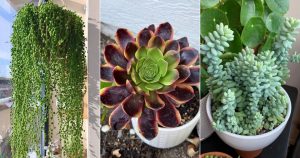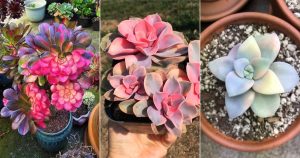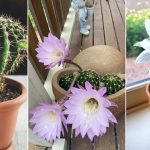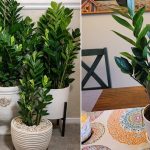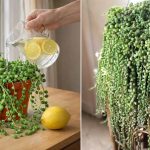Are you also in love with succulents? Check out our top picks that have taken the gardening world by storm!
Loved for their resilience, long life, and striking textures, succulents have been a hot favorite among gardeners, landscapers, and interior stylists for years. From weddings to home and office décor, these plants are low-maintenance, full of color and character, and perfect for beginners.
Common Succulent Plant Representative Species
These well-known and widely recognized succulents are known for storing water in their thick, fleshy leaves, stems, or roots to survive in dry environments.
1. Agave
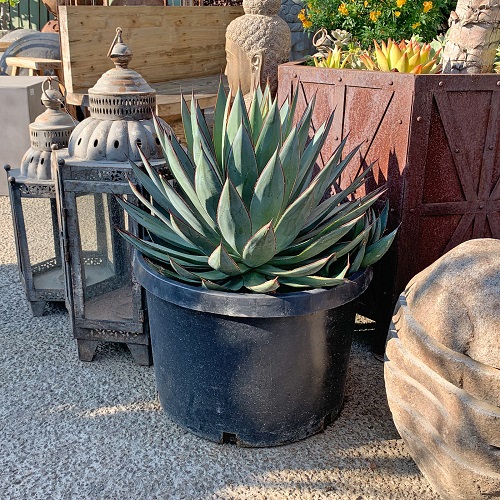
Agave, with around 200 hardy species, thrives mostly in Mexico and the Caribbean. Its rosettes of sharp-tipped leaves lined with spines give it both beauty and bite. The blue agave (Agave tequilana) makes tequila, while Agave sisalana and A. fourcroydes produce natural fibers.
2. Echeveria
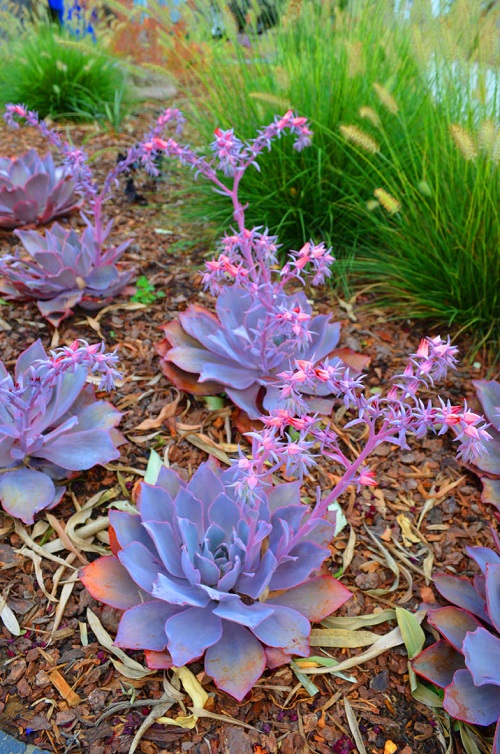
Straight from Central and South America, Echeveria forms compact, flower-like rosettes. While most are small, a few grow into shrubs. Summer brings long stems topped with bell-shaped blooms in red, pink, orange, or white—a feast for the eyes.
3. Aloe
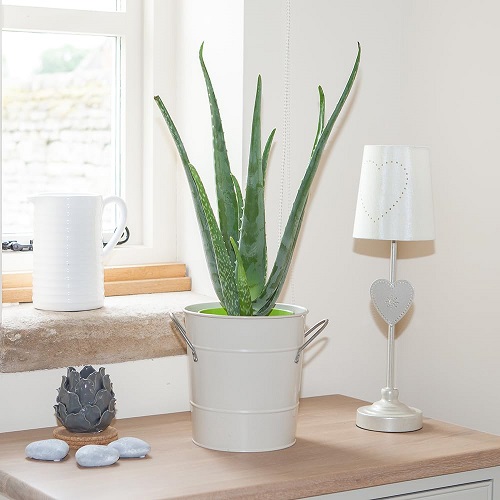
Aloe vera is the star here, famed for its healing properties. Additionally, its fleshy green leaves and tubular blooms light up in red, pink, orange, or white.
Varieties like Aloe aristata and Aloe humilis thrive in bright light with partial shade and only need water when the soil dries out.
4. Haworthia
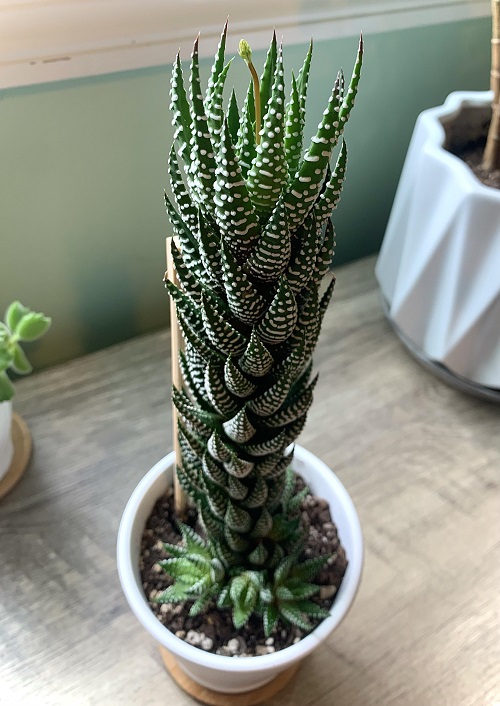
This South African succulent looks like a mini Aloe, with white stripes or spots and tiny summer flowers. It’s easygoing, tolerating modest light—a perfect desk companion.
5. Euphorbia
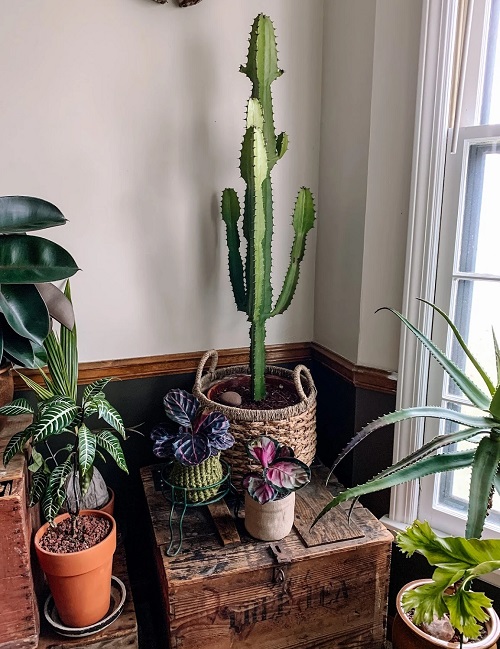
This diverse genus spans from ground-hugging herbs to large trees and includes some thorny succulents.
Euphorbias are unique for their milky sap, which can be toxic, and their distinct floral structure known as a cyathium. However, this structure includes multiple male flowers surrounding a single female flower, all encased in a cup-shaped leaf-like structure.
6. Sedum
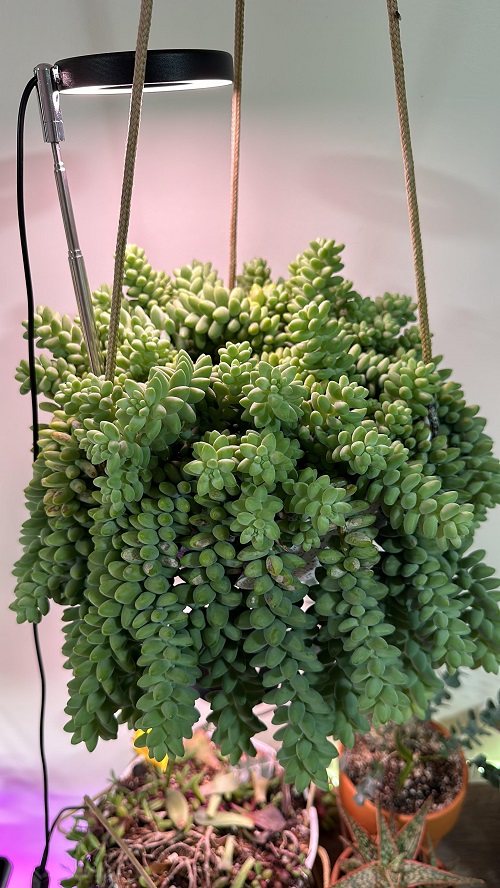
Sedum, with over 500 species, is a leafy succulent found in the Northern Hemisphere, and parts of Africa and South America. Also known as stonecrops, these drought-tolerant plants produce clusters of water-storing, juicy leaves on stems and come in a range of shapes, colors, and sizes.
7. Crassula
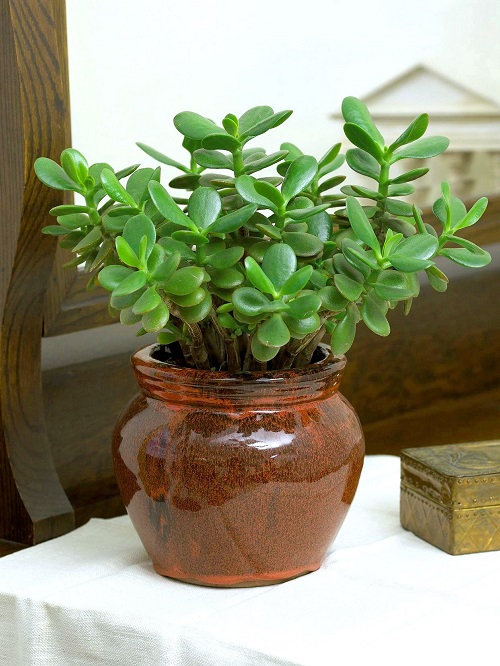
The jade plant’s thick, egg-shaped leaves are instantly recognizable. In addition, nearly 300 species range from groundcovers to small trees, all thriving in sun and sandy, well-drained soil.
Pet owners should note that this succulent is toxic to animals.
8. Pincushion Cactus
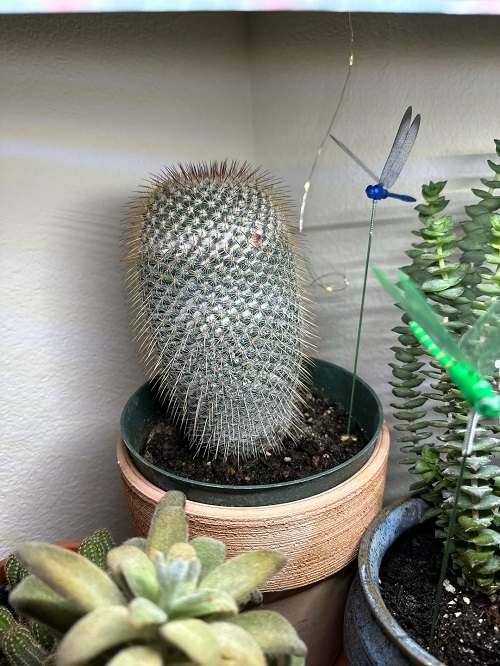
Mammillaria, a low-grower predominantly found in Mexico, is a large cactus genus with around 200 known species. Also called pincushion cactus, it is characterized by an areole divided into a spiny upper part, with colorful flowers and fruits appearing between its tubercles at the base.
It flourishes both indoors and in native arid environments.
9. Kalanchoe
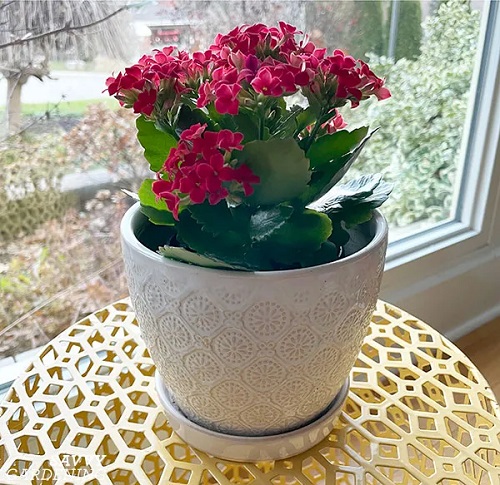
One of the first plants to be sent to space, this tropical succulent has thick, often waxy or hairy leaves with fringed edges arranged opposite across each other along the stems. Native to Madagascar, this seasonal bloomer produces red, pink, yellow, and orange flowers and thrives in sunlight and sandy, well-drained soil.
Check out our list of the most beautiful Kalanchoe types and varieties for growing.
10. Adenium
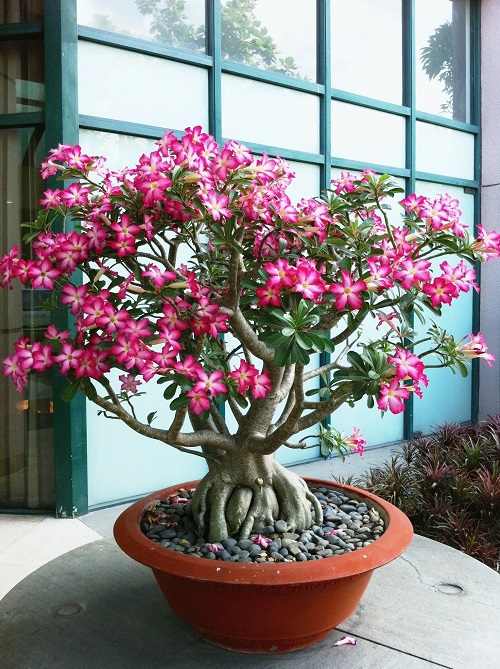
Also called desert rose, the Adenium genus is part of the Apocynaceae family and is notable for its caudex, which serves as a water reservoir during dry periods.
A great companion for other cacti and succulents, its thick, rounded, short trunk and trumpet-shaped rosy blooms make it a popular bonsai choice.
11. Opuntia
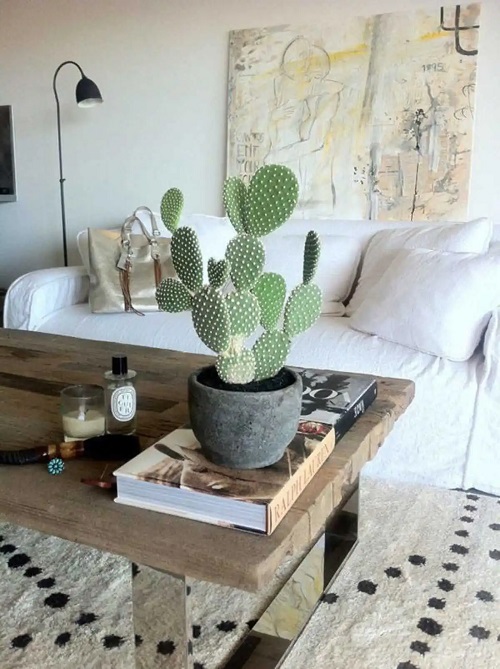
Opuntia, with its 150-180 species, spans from Canada’s Peace River to the southern tip of South America. This genus is well-known for its distinctive flat-jointed pads and is a common sight in both wild and cultivated landscapes.
Species like the prickly pear are known for their hardiness and sweet, melon-like fruits.
12. Schlumbergera
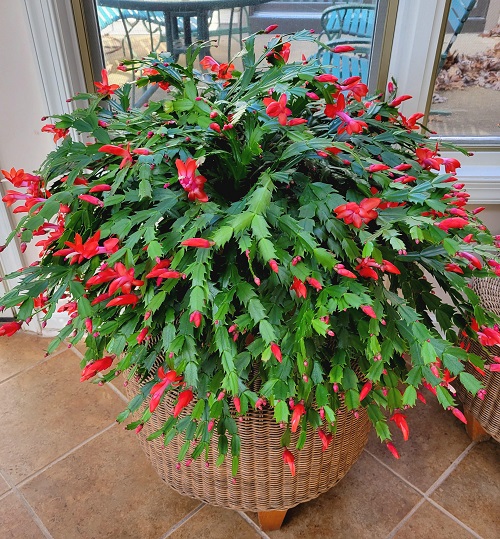
Native to Brazilian rainforests, the Schlumbergera genus comprises six species of spineless cacti.
Cherished for their colorful flowers, they are popular for hummingbird pollination and typically bloom around Thanksgiving in the US.
13. Aeonium
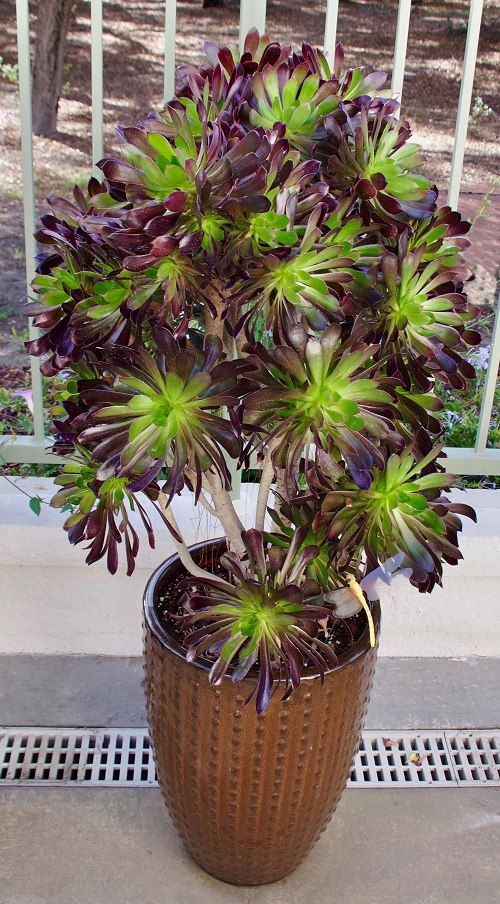
Aeoniums are native to the Canary Islands and boast around 35 distinct species. These compact succulents sport rosette clusters of waxy leaves in red, black, and various variegated tones.
These plants adapt well to both indoor settings and subtropical climates, making them a popular choice for gardeners looking for minimal upkeep with maximum visual impact.
14. Living Stones
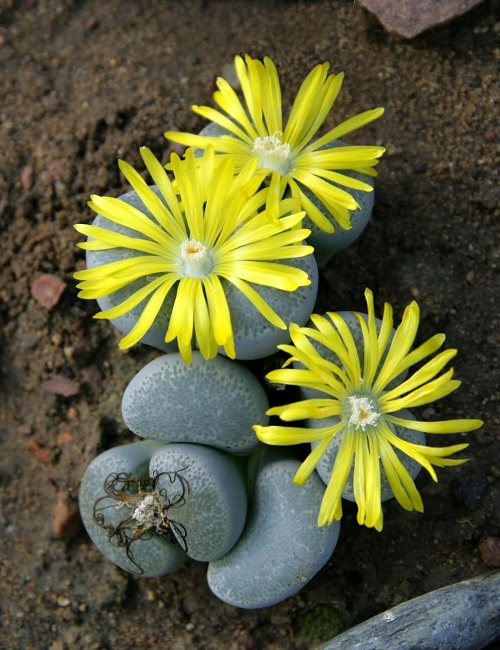
Named after their pebble-like appearance, Lithops are native to southern Africa. Their translucent, olive-shaded round bodies help them blend into their natural environment of rocky landscapes.
15. Senecio
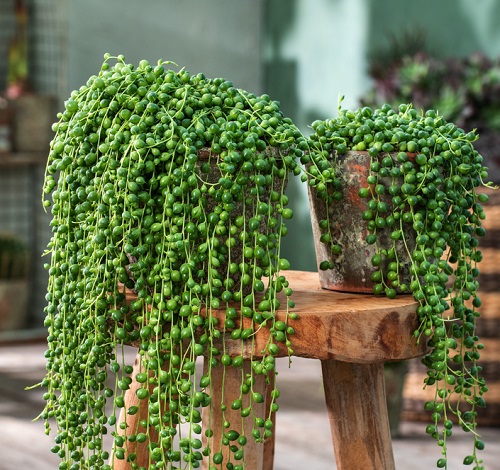
Senecio plants, part of the Asteraceae family, display distinctive yellow flowers. About 70 species of these plants inhabit various habitats in North America, ranging from mountain meadows to disturbed soils, showing their resilience and adaptability.
16. Cotyledon
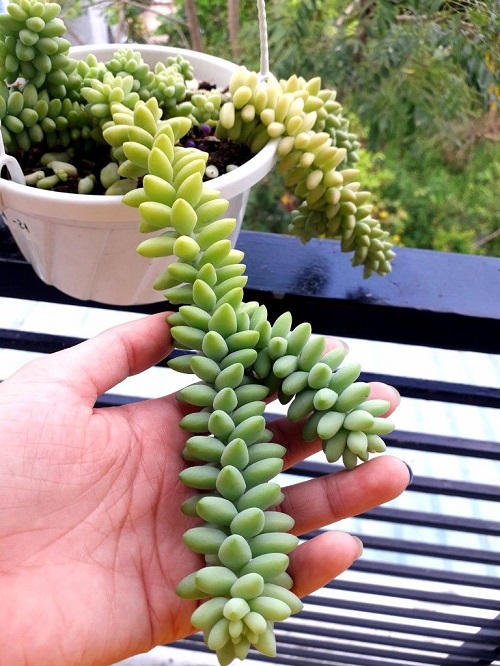
This genus is part of the diverse Crassulaceae family, with around 35 species endemic to parts of southern Africa.
Cotyledon plants are found in habitats as diverse as coastal flats and rocky cliff faces. Their leaves vary in shape, even within individual species, while their flowers generally maintain a consistent structure.
17. Hens and Chicks
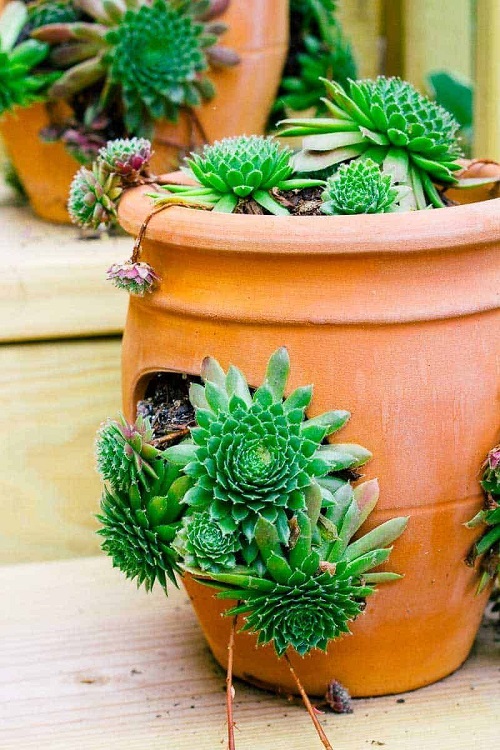
Hens and Chicks are mat-forming succulents perfect for rock gardens and wall crevices. In addition, they thrive in sandy, well-draining soil. This plant forms a central “hen” rosette with smaller “chicks” spreading around it.
Varieties of hens and chicks include Sempervivum tectorum, Sempervivum arachnoideum, and Sempervivum ‘Sugar Shimmer.’
18. Dracaena
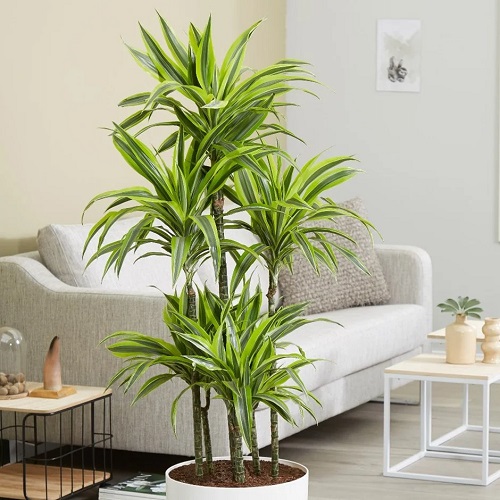
The last one on our list of common succulent plants is Dracaena. Comprising over 170 species, these plants vary from small to tree-like sizes. They are predominantly grown indoors due to their decorative leaves, which often feature variegated patterns.
Other Dracaena varieties perfect for indoor cultivation include Dracaena Marginata, Dracaena Fragrans, and Dracaena Draco.
Succulents truly offer endless variety, beauty, and charm for any plant lover. Which of these is your favorite? Share your thoughts, growing tips, or success stories in the comments below!

